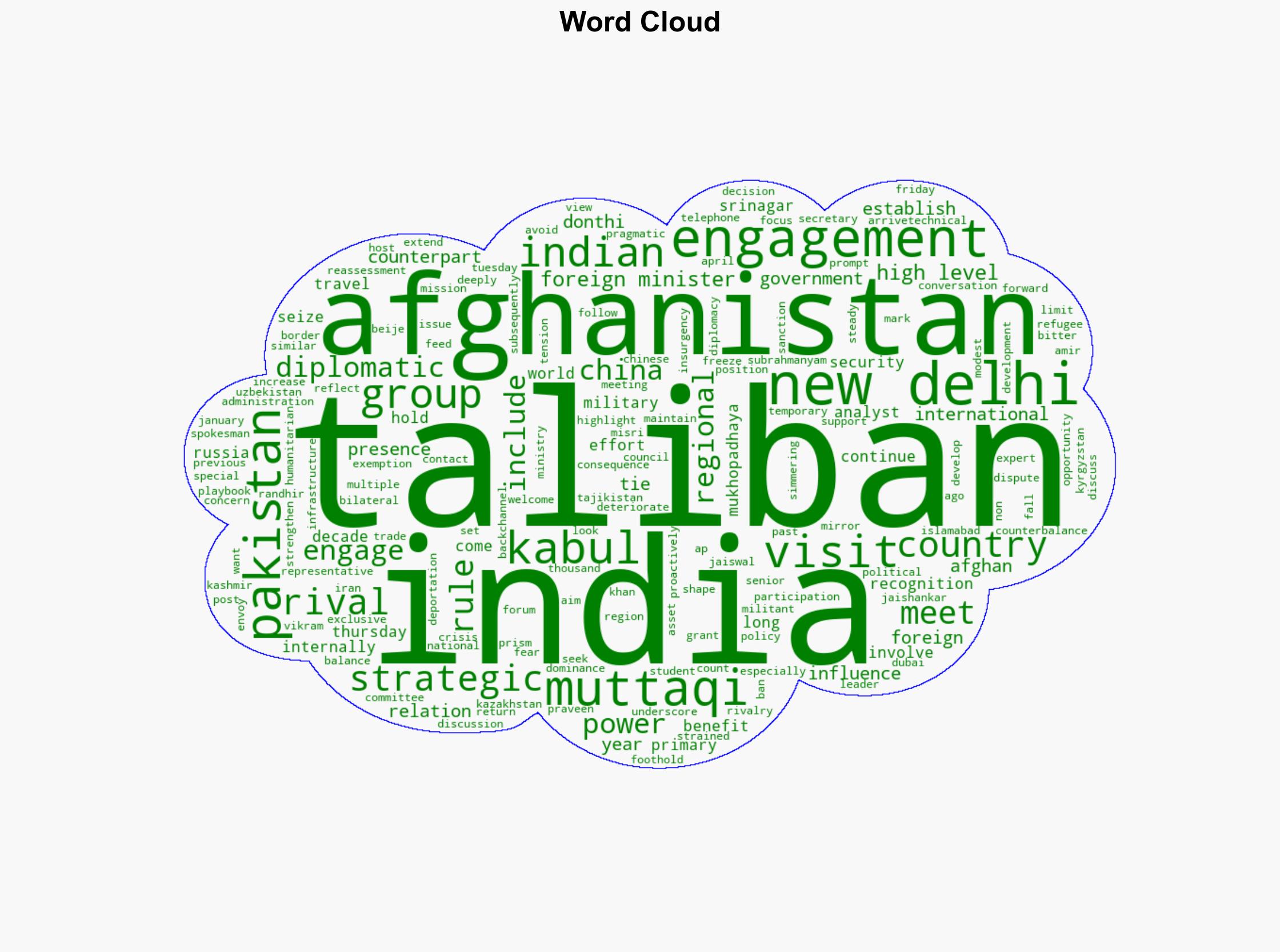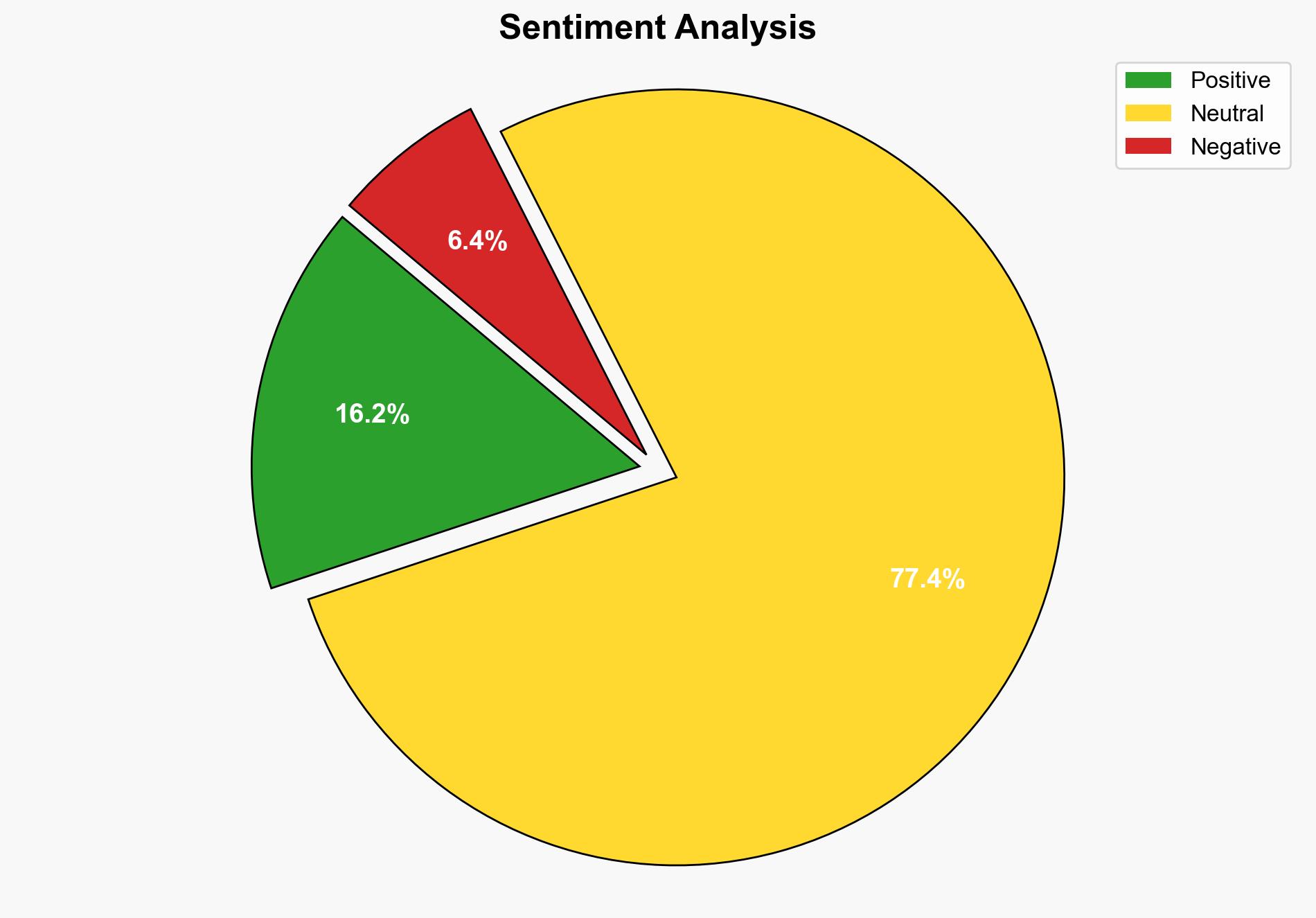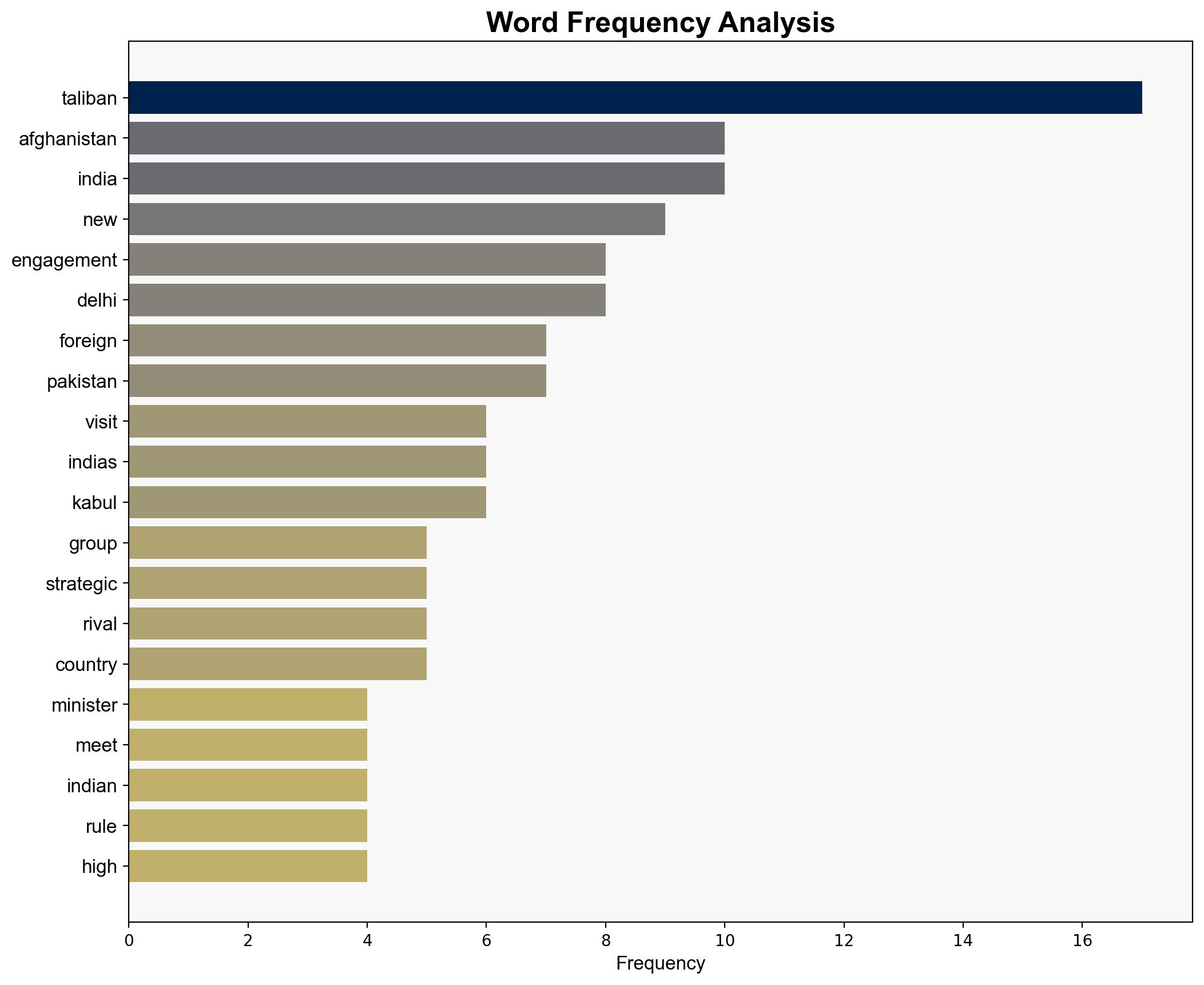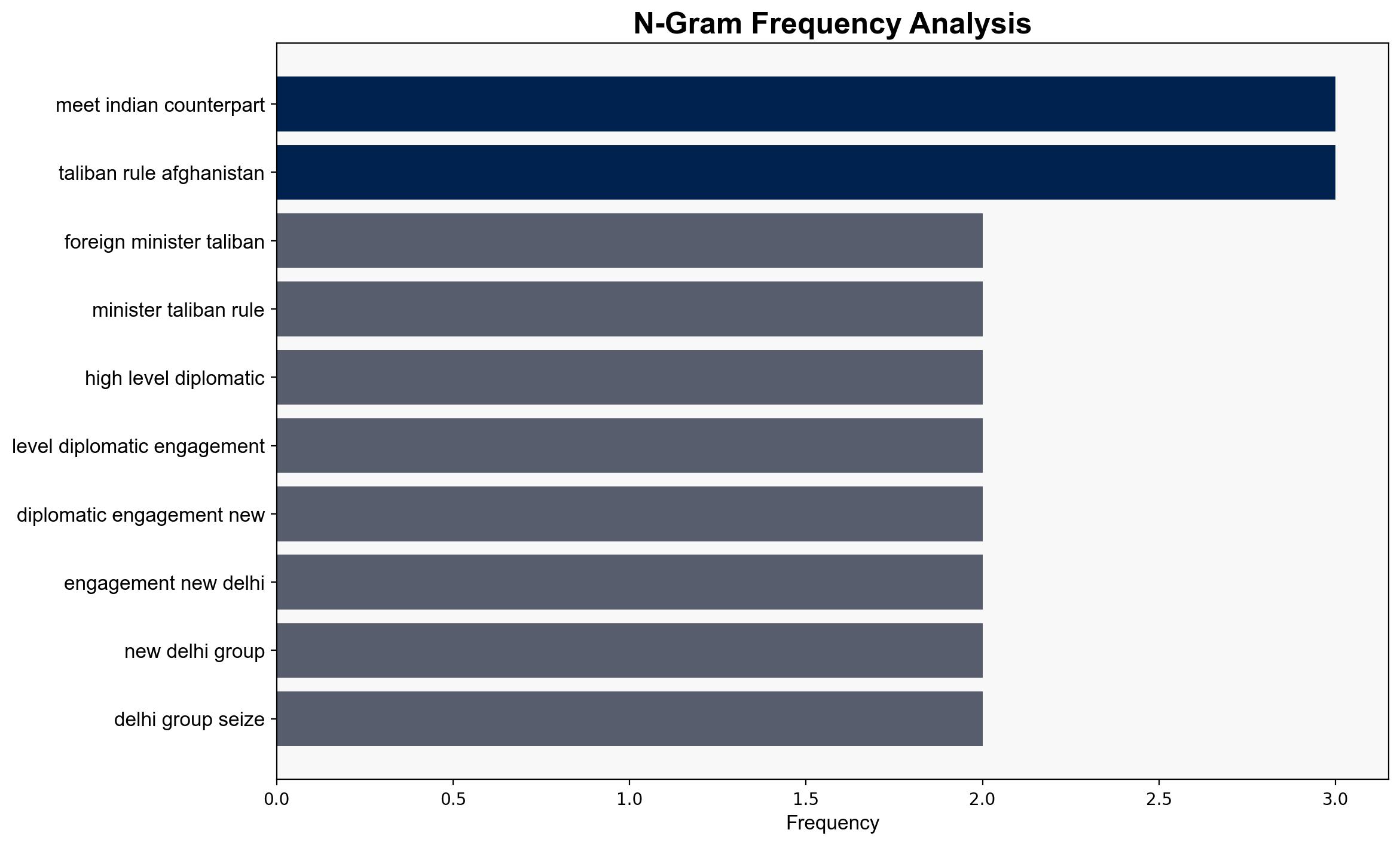Afghanistan’s Taliban foreign minister meeting with Indian counterpart – ABC News
Published on: 2025-10-10
Intelligence Report: Afghanistan’s Taliban foreign minister meeting with Indian counterpart – ABC News
1. BLUF (Bottom Line Up Front)
The most supported hypothesis is that India’s engagement with the Taliban represents a strategic recalibration to counterbalance Pakistan and China’s influence in Afghanistan. This is assessed with moderate confidence due to the complexity and evolving nature of regional dynamics. Recommended action includes enhancing diplomatic channels with Afghanistan while monitoring Pakistan and China’s responses.
2. Competing Hypotheses
1. **Hypothesis A**: India’s engagement with the Taliban is primarily driven by a strategic need to counterbalance Pakistan and China’s influence in Afghanistan. This approach aims to establish India as a key player in Afghan affairs and prevent its regional rivals from gaining exclusive influence.
2. **Hypothesis B**: India’s engagement is primarily humanitarian, focusing on stabilizing Afghanistan to prevent spillover effects such as refugee crises and increased militancy in the region, particularly in Kashmir.
Using ACH 2.0, Hypothesis A is better supported by the evidence, including India’s historical rivalry with Pakistan and China, and recent diplomatic activities indicating a strategic shift rather than purely humanitarian concerns.
3. Key Assumptions and Red Flags
– **Assumptions**: It is assumed that India views the Taliban as a legitimate power broker in Afghanistan and that engagement will yield strategic benefits. Another assumption is that Pakistan’s influence over the Taliban is waning.
– **Red Flags**: The Taliban’s historical ties with Pakistan could undermine India’s efforts. Additionally, the Taliban’s internal dynamics and potential deception in diplomatic engagements could pose risks.
– **Blind Spots**: Limited insight into the Taliban’s long-term strategic goals and internal factionalism could affect the accuracy of predictions.
4. Implications and Strategic Risks
– **Geopolitical**: Increased engagement with the Taliban could strain India’s relations with Western allies who may view the Taliban with skepticism.
– **Economic**: Potential for increased trade and investment opportunities in Afghanistan if stability is achieved.
– **Security**: Risk of increased militancy in Kashmir if Taliban factions align with anti-India groups.
– **Psychological**: Public perception in India regarding engagement with a previously hostile regime could affect domestic support for foreign policy.
5. Recommendations and Outlook
- Enhance intelligence-sharing with allies to monitor Taliban activities and regional dynamics.
- Develop contingency plans for potential refugee influxes and increased militancy in Kashmir.
- Scenario-based projections:
- **Best Case**: Successful diplomatic engagement leads to regional stability and economic growth.
- **Worst Case**: Taliban deception leads to increased militancy and regional instability.
- **Most Likely**: Gradual improvement in relations with Afghanistan, with ongoing challenges from Pakistan and China.
6. Key Individuals and Entities
– Amir Khan Muttaqi
– Randhir Jaiswal
– Vikram Misri
– Subrahmanyam Jaishankar
– Praveen Donthi
7. Thematic Tags
national security threats, geopolitical strategy, regional influence, diplomatic engagement




